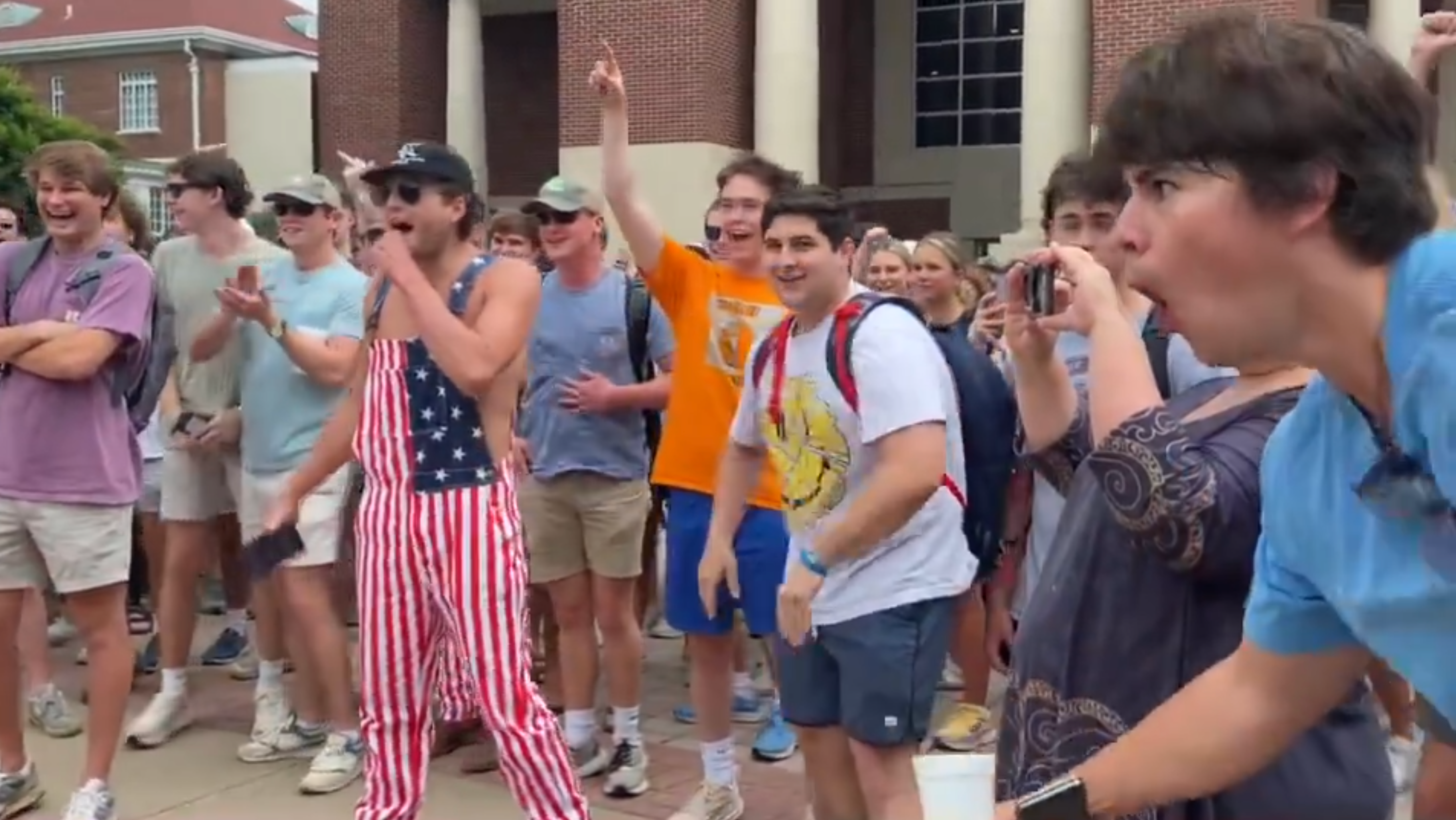The recent incident at the University of Mississippi has sparked widespread outrage and highlighted ongoing issues of racism and discrimination in college environments. A fraternity at Ole Miss has expelled a student after he was filmed making monkey noises towards a Black protester during a Gaza solidarity demonstration. This incident, which was caught on video, raises significant questions about racism, freedom of speech, and the responsibility of educational institutions to foster a respectful atmosphere.
In the heart of this controversy lies a troubling aspect of American history. Referring to Black individuals as monkeys is not just an offensive act; it is steeped in a history of racism that dates back hundreds of years. Such depictions have been used to justify slavery and discriminatory laws, making this incident particularly sensitive and alarming.
The Phi Delta Theta fraternity acted swiftly in response to the backlash, stating that the behavior exhibited by the student was “unacceptable.” The fraternity's leadership emphasized the importance of maintaining a respectful community while balancing the principles of free speech, a challenge that has become increasingly prevalent on college campuses across the nation.
As the university community grapples with the implications of this incident, the broader conversation about racism and accountability in educational settings continues to unfold. The expulsion of the student is seen as a crucial step in addressing the toxic behaviors that can manifest in collegiate environments, but it also raises questions about the effectiveness of such disciplinary measures in creating lasting change.
For many, this incident serves as a reminder of the work that remains in combating racism and fostering an inclusive environment for all students. The ongoing pro-Palestinian protests, which have become a focal point across various college campuses, further complicate the narrative, illustrating the intersection of social justice movements and the fight against racial discrimination.

The incident has not only drawn condemnation from various quarters but has also been a topic of political discourse. Some politicians have reacted positively to the fraternity's decision, while others have criticized the actions that led to the expulsion. This division highlights the complexities of navigating free speech and accountability in a politically charged environment.
As the university investigates the incident further, it underscores the essential need for educational institutions to actively promote discussions around racism and inclusivity. The actions taken by the fraternity and the university will likely set a precedent for how similar situations are handled in the future.




